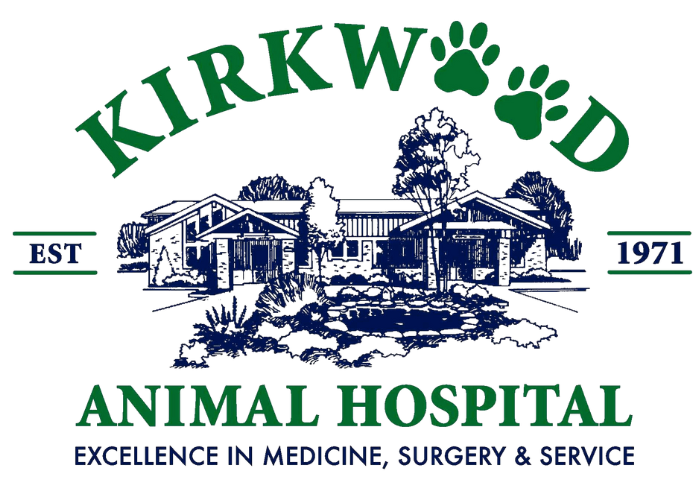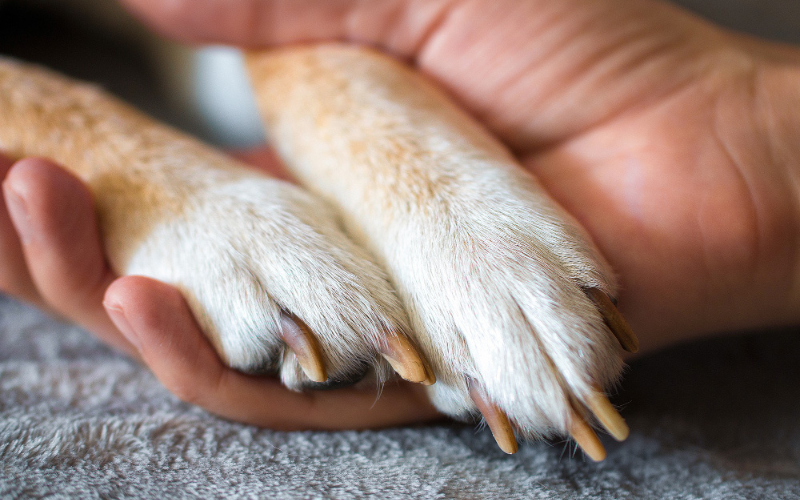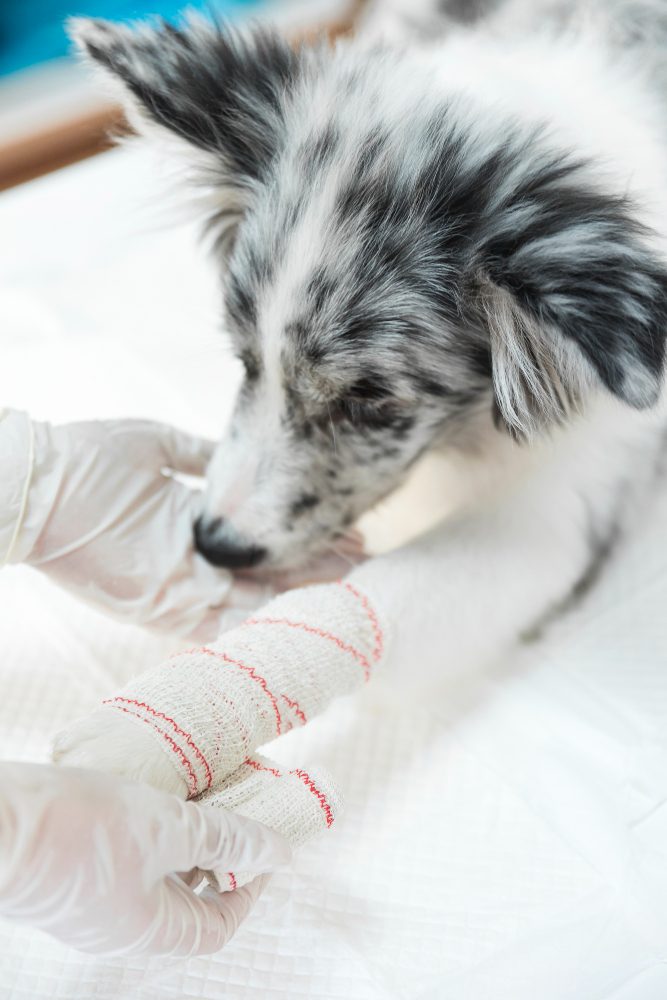ACL Repair in Kirkwood, MO
The CCL protects against three main forces: internal rotation, hyperextension, and cranial tibial thrust. Injuries to the CCL in dogs can be a result of trauma and degeneration.
ACL Repair
Cranial Cruciate Ligament Rupture and Surgical Repair
“Your dog is limping and has likely ruptured their ACL”
“Now What?”
Please remember that timely treatment is the primary concern. Understand that once a joint has been injured, that joint will never be as good as before the injury! However, we can make it much better with surgery.
- The Cranial Cruciate Ligament (CCL) is the main ligament in the knee of dogs. In humans, it is commonly referred to as an ACL or Anterior Cruciate Ligament. It prevents the femur from riding over the top of the tibia when weight is applied to the knee. When the ligament is ruptured, you can palpate a drawer movement in the knee. Your veterinarian can diagnose a CCL rupture by feeling this drawer movement. In most cases, this requires anesthesia to obtain complete relaxation. You cannot directly diagnose a CCL rupture with a radiograph. We will take radiographs on your dog just before surgery to make sure there are no further problems with the leg.
- CCL rupture is a huge problem in veterinary medicine. Most of the time, the CCL injury is a result of a degenerative process, and there is usually no history of trauma. We do not know why this degeneration occurs. We have treated dogs as young as 6 months old with this type of injury.
- It is an important fact to know that 50% of dogs that rupture one CCL will also rupture the second one. If a dog ruptures both CCLs at one time, it will be very difficult for them to walk. So it is essential that the dog’s owner limit their dog’s activities until the first CCL surgery is complete.
- At Kirkwood Animal Hospital, we believe it is essential that surgery be performed for a CCL rupture. If both CCLs rupture, you may be faced with a dog that cannot get around and a long, expensive recovery process when two knee surgeries are done at one time. Without surgery, a dog will be able to use their leg again (approximately 4-6 weeks), but it will likely limp extensively, the muscles of the leg will atrophy, and severe osteoarthritis will develop in the knee. However, not all dogs are good surgical candidates. Factors such as age and concurrent ailments can impact this decision. A discussion with your veterinarian can help determine if surgery is best for your pet.
- Many different surgeries have been tried over the last 50 years, and none of them are perfect. New procedures are being developed all the time. Surgeons are always looking for a better procedure. The 3 most common surgeries performed in the United States are the TPLO, the Tightrope technique, and the Lateral Fabellar Suture. The TPLO and the Tightrope technique are usually performed by a boarded surgeon. The Lateral Fabellar Suture surgery is the procedure that we perform at Kirkwood Animal Hospital. All of the procedures have good outcomes. More expensive surgeries are usually recommended for working or high-activity dogs, but they have been associated with more complications.
- It is important to remember that your dog has a serious knee injury. The dog’s knee will never be the same again, no matter what surgery is performed. The surgeries are all designed to stabilize the knee and reduce the amount of arthritis that develops in the knee as the dog ages.
- Post-operative physical rehabilitation is important. For the first 14 days after surgery, your dog should have no exercise. After 14 days, you can start walking your dog very slowly on a leash for one mile a day. It is a good idea to walk the dog on a leash in tight circles, clockwise and counterclockwise, to ensure even usage of muscles. Hills and steps are encouraged during this time but must be done slowly. After 4 weeks, we will examine your dog again to ensure recovery is going well. We will use post-operative analgesics, anti-inflammatory drugs, glucosamine supplements, and Therapy Laser treatments to help with rehabilitation.
Veterinary Services in Kirkwood, MO
Pet Laboratory Testing
Pet Surgery
Pet Dentistry
Pet Ultrasound
Pet Therapeutic Laser Treatment
Pet Cryosurgery
Pet Radiology
Pet Pain Control
Pet Endoscopy
Pet Advanced Medicine
Pet Urinalysis Machine


